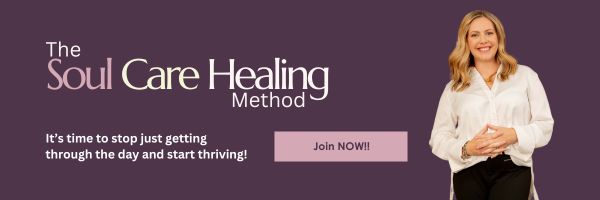When Life Shakes Your Identity: Rebuilding Confidence After Change
There are moments in life that feel like someone has pulled the rug out from under you.
One day you think you know who you are, confident, capable, clear on your path and the next, you’re left wondering: who even am I now?
It might come after a sudden life change. It might come after you’ve been exposed in a way you didn’t expect. Or maybe it sneaks up slowly, until you wake up and realise the version of you that once felt solid now feels like a stranger.
If you’ve ever found yourself in that space, confused, shaken, or stripped of confidence, I want you to know you are not broken. You are human. And, you are far more resilient than you probably give yourself credit for.
When Confidence Cracks
I’ve been there.
And maybe you have too.
Something shifts: a career ends, a relationship dissolves, parenting stretches you in ways you never imagined and suddenly you feel naked. Exposed. Unsteady.
It’s a terrifying feeling because identity is the thing we quietly rely on every single day. It’s our compass, our anchor, our “this is who I am” foundation. When that feels wobbly, our confidence takes the hit.
So, what do you do when you don’t know what’s real, what’s not, or where to even begin again?
You go back to basics.
I know it sounds simple and maybe even a little old school, but trust me on this one:
pen to paper is massive.
The Pen-to-Paper Reset
Here’s where I ask you to play along with me. No scrolling, no overthinking, just grab a notebook and write:
What’s great about me?
What makes me unique?
How do I help others?
What are my good points?
When have people praised me?
And yes, I know you just rolled your eyes. I know the thought of writing “what’s great about me” feels a bit icky or awkward. But here’s the thing: you’ve probably been doing it for everyone else your entire life.
You can list your partner’s good points. You can hype up your best friend. You can praise your kids until the cows come home. But when was the last time you actually documented your own brilliance?
This exercise isn’t about ego. It’s about truth. It’s a reminder that even when you feel lost, you’ve already built a life full of evidence that you do matter, you are unique, and you have bounced back before.
Drawing Your Lifeline
Now, let’s go one step further.
Draw a line across a page, your lifeline.
Mark it out in 5-year intervals, or if that feels too much, just by decades. Then, at each point, write down:
- Big wins.
- Challenges you overcame.
- Small moments of resilience.
What you’ll start to see is proof.
Proof that you’ve been bouncing back all along. Proof that even when it felt impossible, you found a way through.
We rarely celebrate those moments because they’re woven into daily life. But when the big challenges come and everything feels dark and suffocating, that lifeline is the evidence you need: you are stronger than you remember.
Parenting and the Pitchfork Moments
Now, let’s talk about some of the times in life when this confidence shake-up tends to hit hardest.
The first one is parenting.
Kids are masterful at pressing the exact button you didn’t even know you had. Sometimes it feels like your respect has been crossed, or your values stomped all over. Suddenly, you’re lit up inside, pitchfork in hand, ready to defend yourself.
Here’s the thing: often what’s firing up isn’t just your child’s behaviour. It’s old wounds. It’s unspoken values. It’s parts of you that feel exposed.
The opportunity here? To pause. To ask:
What am I really fighting for?
Can I stand strong in my values without losing my grace?
Because sometimes parenting isn’t about correcting our kids, it’s about noticing what’s being triggered in us.
Relationships and the Danger of Filling Voids
The second time confidence takes a knock is in relationships, especially separation.
Here’s the uncomfortable truth: sometimes we fall in love with people because they blanket the parts of ourselves we don’t want to face. They love us where we don’t love ourselves. And it feels wonderful, until it doesn’t.
When that love disappears through breakup, divorce, or even the end of a friendship, we’re left exposed. And if we haven’t done the work to send love to those parts ourselves, it can spiral into mental health struggles and self-doubt.
Relationships should be about journeying together, not fixing each other’s wounds. Because if you expect someone else to fill the voids inside you, it will eventually lead to burnout, resentment, or heartbreak.
The invitation here? To stop outsourcing your self-worth. To become the one who meets yourself in love, so any relationship becomes a bonus, not a lifeline.
Retirement and the “Now What?”
The third moment of identity shake-up comes at retirement.
Maybe you had a career you loved. Maybe you poured yourself into parenting. Maybe you built your identity around busyness, productivity, or achievement.
And then, it ends.
The role is gone. The job is over. The kids are grown. Suddenly the very thing you built your life around disappears, and you’re left wondering: who am I without it?
For some, retirement shines a light on regrets, missed friendships, or the lack of financial security to create the “romantic” lifestyle we see in movies. For others, it’s the shock of having no hobbies, no plan, no stimulation.
This is why coming back to basics is so powerful. Because even when the big structures fall away, the truth of who you are doesn’t disappear. It just needs to be reclaimed.
Learning to Sit in the Grey
Here’s the part we often resist: sometimes you won’t have a plan.
And that’s okay.
We’ve been trained to always know the next step. From childhood it’s “what school are you going to?” then “what subjects will you choose?” then “what career path are you taking?” Life is a constant conveyor belt of “what’s next.”
So when you find yourself in the grey, not knowing, not sure, sitting in uncertainty, it feels terrifying.
But please don’t rush through it.
This space, as uncomfortable as it is, can be fertile ground for growth. It’s where creativity sparks, where self-compassion deepens, where the softening happens.
Sit in it. Write in it. Reflect in it. That’s where new versions of you begin to emerge.
The Wellbeing Practice
So here’s your invitation:
Pen-to-Paper Reset
Write down: what’s great about me, what makes me unique, how do I help others, what are my good points?Draw Your Lifeline
Mark your life in intervals and write down every win, bounce back, and moment of resilience.Sit in the Grey
Instead of rushing to fix, journal on these prompts:What feels uncomfortable about not knowing?
What could this space be teaching me?
What do I know to be true about myself, no matter what changes around me?
Here’s what I want you to remember:
You’ve already survived more than you realise. You’ve already proven yourself strong, resilient, and capable.
Confidence isn’t about never being shaken. It’s about remembering when the shake comes, that you have always found your way back.
Maybe this season is calling you to a new identity, a fresh version of yourself. Maybe it’s simply reminding you to love the one who’s been here all along.
Either way, you are not broken. You are in the process of becoming.
And that, my love, is where true confidence begins.
Gayle xx





